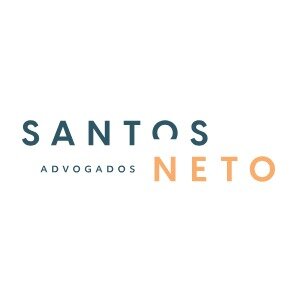Best Private Equity Lawyers in São Paulo
Share your needs with us, get contacted by law firms.
Free. Takes 2 min.
List of the best lawyers in São Paulo, Brazil
About Private Equity Law in São Paulo, Brazil
Private Equity (PE) in São Paulo, Brazil, represents a thriving segment of the financial market where investors acquire stakes in private companies or publicly listed companies with the intention to restructure, grow, or eventually sell them for profit. São Paulo is the economic and financial hub of Latin America, home to a sophisticated investment community and a robust business environment. Legal frameworks surrounding private equity are instrumental in setting the standards and protections for investors, companies, and fund managers. Understanding the typical legal procedures, regulatory requirements, and best practices is essential to ensure compliant and successful transactions in this dynamic sector.
Why You May Need a Lawyer
Engaging in private equity transactions can involve significant financial stakes, complex regulations, and intricate contractual arrangements. Professional legal assistance is vital for the following reasons:
- Conducting or interpreting due diligence reports when buying or investing in a company
- Structuring investment funds and setting up investment vehicles
- Drafting or negotiating purchase or shareholder agreements
- Ensuring regulatory compliance with Brazilian authorities
- Resolving disputes between investors, partners, or management
- Managing exit strategies, such as selling stakes via initial public offerings or private sales
- Protecting your interests in case of bankruptcy, fraud, or unexpected liabilities
- Advising on tax implications of investments and fund structuring
The complexity and high-value nature of private equity deals make the involvement of an experienced lawyer in São Paulo crucial to avoid legal pitfalls and maximize returns.
Local Laws Overview
Private Equity activity in São Paulo is primarily regulated at the federal level, but the state’s status as Brazil’s primary financial center means local practices and interpretations can be influential. Key aspects include:
- Regulatory Bodies: The main regulatory body is the Comissão de Valores Mobiliários (CVM - Securities and Exchange Commission of Brazil), which supervises the operations of investment funds and ensures market integrity.
- Fund Structures: Private equity funds are typically organized as FIPs (Fundo de Investimento em Participações), governed by CVM Instruction 578, requiring specific governance, capitalization, and investment practices.
- Parties Involved: Deals often involve fund managers (administrators), investors (quotaholders), and the portfolio companies themselves. Each party's rights and duties must comply with the Civil Code and relevant corporate laws.
- Foreign Investment: There are procedures for registering foreign capital with the Brazilian Central Bank (Banco Central do Brasil) and requirements for currency exchange compliance.
- Antitrust Regulations: Transactions above certain thresholds must be reported to the Administrative Council for Economic Defense (CADE) to ensure they do not harm competitive conditions.
- Taxation: Private equity structures and exits are subject to a complex tax regime that should be proactively managed, including capital gains, income tax, and local taxes.
- Labor and Environmental Laws: Acquisitions may require addressing liabilities related to employment practices and regulatory compliance of portfolio companies.
As legal frameworks evolve and global standards increase, the proper navigation of local and federal laws is indispensable for all participants in private equity transactions in São Paulo.
Frequently Asked Questions
What is a Private Equity Fund (FIP) in Brazil?
A FIP (Fundo de Investimento em Participações) is a form of investment fund regulated by the CVM that allows pooled investment in equity of Brazilian companies, typically for acquiring significant or controlling interests and promoting business growth.
Do I need Brazilian residency to invest in a FIP?
No. Both residents and non-residents can invest in FIPs, but foreign investors must comply with registration requirements at the Central Bank and CVM, and appoint a local representative or institution to handle regulatory interactions.
What are the main steps in a private equity transaction?
The key steps typically include deal sourcing and screening, negotiation of preliminary agreements, detailed due diligence, drafting and signing of the acquisition contracts, regulatory filings, completion and payment, and finally, post-acquisition integration.
Is due diligence really necessary?
Absolutely. Due diligence is essential to uncover legal, financial, or operational liabilities within a target company that could affect the investment’s value or create future risks.
Are there restrictions on foreign ownership of Brazilian companies?
In general, foreign investors can own Brazilian companies, but some sectors (such as media or aviation) have restrictions, and certain acquisitions must be reported or approved by regulatory agencies.
How can I exit a private equity investment in São Paulo?
Common exit strategies include selling shares to another investor, launching an initial public offering (IPO), or selling the company to a strategic buyer. Each exit type has specific legal and tax implications to consider.
What taxes apply to private equity investments?
Taxes include income tax on capital gains, taxes on dividends (depending on changes in local legislation), and specific taxes at the fund level. Proper structuring can optimize tax efficiency.
What is the role of the CVM in private equity?
The CVM sets the rules for registration, management, operation, and disclosure of private equity funds, and oversees compliance to maintain market transparency and investor protection.
Can contractual terms be freely negotiated in a private equity deal?
Parties have wide latitude in negotiating terms, but all agreements must comply with Brazilian law, observe good faith, and not violate public order or mandatory statutes.
How long does a typical private equity transaction take?
Depending on deal complexity and regulatory approvals needed, transactions may take anywhere from a few weeks to several months to be finalized.
Additional Resources
For further guidance or information related to private equity in São Paulo, consider consulting the following organizations and resources:
- Comissão de Valores Mobiliários (CVM)
- Banco Central do Brasil (Central Bank of Brazil)
- Associação Brasileira de Private Equity e Venture Capital (ABVCAP)
- Conselho Administrativo de Defesa Econômica (CADE)
- São Paulo State Bar (Ordem dos Advogados do Brasil - Seccional São Paulo)
- Brazilian Securities, Corporate, and Tax advisory publications
These institutions provide regulatory updates, guidelines, and sometimes direct assistance regarding compliance matters and legal frameworks for private equity activities.
Next Steps
If you are considering involvement in a private equity transaction or have questions specific to your situation in São Paulo, the recommended course of action is:
- Gather relevant documents and information about your proposed transaction
- Identify your main objectives, questions, and concerns for the investment
- Contact a qualified lawyer or law firm with experience in private equity, corporate, and securities law in São Paulo
- Request an initial consultation to understand potential risks, obligations, and best structures for your investment
- Ensure ongoing legal support throughout negotiations, regulatory filings, and post-acquisition processes
Navigating the private equity landscape can be challenging, but with local legal expertise, your interests will be better protected, and your transactions more likely to succeed.
Lawzana helps you find the best lawyers and law firms in São Paulo through a curated and pre-screened list of qualified legal professionals. Our platform offers rankings and detailed profiles of attorneys and law firms, allowing you to compare based on practice areas, including Private Equity, experience, and client feedback.
Each profile includes a description of the firm's areas of practice, client reviews, team members and partners, year of establishment, spoken languages, office locations, contact information, social media presence, and any published articles or resources. Most firms on our platform speak English and are experienced in both local and international legal matters.
Get a quote from top-rated law firms in São Paulo, Brazil — quickly, securely, and without unnecessary hassle.
Disclaimer:
The information provided on this page is for general informational purposes only and does not constitute legal advice. While we strive to ensure the accuracy and relevance of the content, legal information may change over time, and interpretations of the law can vary. You should always consult with a qualified legal professional for advice specific to your situation.
We disclaim all liability for actions taken or not taken based on the content of this page. If you believe any information is incorrect or outdated, please contact us, and we will review and update it where appropriate.

















